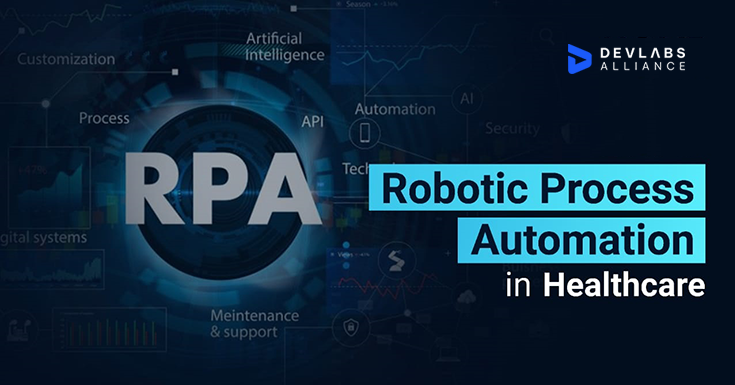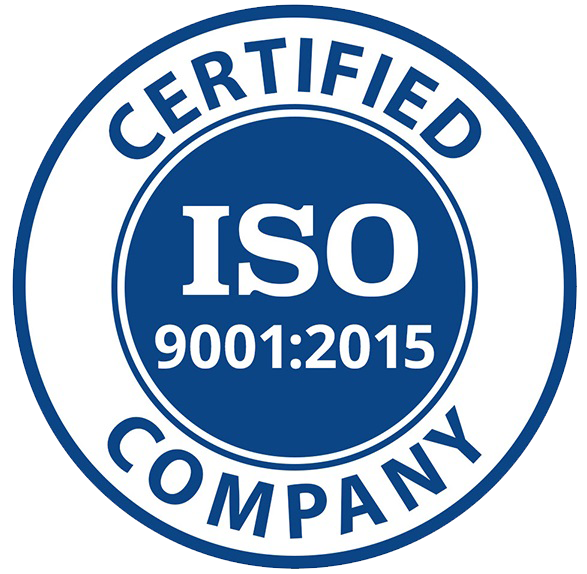
Robotic Process Automation in Healthcare Industry
Author
2023-09-07
0 mins read

Similar Blogs
What is Automation?
0 mins read
2023-09-13
JIRA Interview Question – 2024
0 mins read
2023-09-07
Top 10 Automation Testing Interview Questions – 2024
0 mins read
2023-09-14
Code Coverage Vs. Test Coverage
0 mins read
2023-09-07
How To Validate API Response in Automation?
0 mins read
2023-09-07
Top 10 Automation Testing Interview Questions – 2023
0 mins read
2023-09-07
Robotic Process Automation (a.k.a. RPA) now has the potential to be a complete human process simulation and not just repetitive task automation. Very recent breakthroughs enable RPA to be usable in complex healthcare information technology environments and is a direct interface to AI (Artificial Intelligence) driven business solutions.
Nowadays health leaders and healthcare industry CFOs indicate overall cost reduction and improve efficiency as one of their top two financial priorities. The operations team from the health care system use Robotic Process Automation to transform a completely manual process into an automated process to cut costs and improve efficiency.
There are numerous automation tools and techniques but Robotic Process Automation (RPA) is one of the best options for the implementation of process automation in the healthcare systems since RPA has the potential for great transformation.
Initially, healthcare systems started using RPA for back-office processes in order to eliminate paperwork and reduce the amount of time it takes to process files but now RPA is going far beyond these simple tasks and helping healthcare providers not only reducing costs and gaining efficiency, but also increasing the quality of patient care and the amount of time spending with patients.
As patient numbers increase, health service providers are tested with overseeing levels of stock, supporting digitization of patient records, maximizing appointment, and executing billing and claims processing. To help conquer these operational pain points, increasingly more healthcare industries are grasping RPA to mitigate these difficulties and drive improved effectiveness and development.
According to UiPath “Healthcare industries are predicted to have a 36% automation potential”. This implies in excess of 33% of healthcare assignments— particularly administrative, back-office capacities—could be automated, allowing healthcare providers to improve the customer experience because automating classification saves time and money, prevents misdirection and reduces human error.
Healthcare’s major pain points before automation:
There are many pain points faced in becoming more streamlined and efficient as a whole. Some of the biggest pain points faced by healthcare providers include:
- Rising healthcare costs
- Changing healthcare demographics
- Lack of efficiency and customer experience
- Billing & claims management
- Inventory management
- Patients appointment and entering their records manually
Before automation, security was the main concern for the healthcare industry but now it’s not the case since robots are looking at our data, not humans looking at our data.Largest number of hospitals having more than 2000 beds were doing lots of activities manually, accuracy and frequency was a challenge, people were not able to complete activities on time. Once health leaders introduced with RPA since then not looking back.Healthcare wants to start small but to scale up as and when required and RPA is helping healthcare to automate tasks.
Earlier, there was a huge volume of email from insurance providers that used to be fed into the system and the entire activity was manual and there was a high chance of missing data entry in many cases. RPA came into healthcare’s rescue where it read all email successfully and entered into the system, saving time and boosting accuracy.
The kind of benefit that an operations team is getting from putting RPA is that they have been able to do things which was not humanly possible to do.So much data that they deal with there in the system , every patient may have probably thousand, five hundred interactions or episodes within a stay. RPA is now able to give them data which they could work upon so it’s improved their productivity and now they can really make a difference to the business and it has also given a lot of control.
Earlier, they were dependent on human beings so there can be some mismatches and somebody tries to reconcile data manually but RPA really throws up the accurate matching or reconciliation of the data and also the speed is really immense. Now we can get the business reports every day. By the time they reach office, they know what’s happened and where the problem lies.With the success with RPA so far, they now plan to scale up RPA in other areas such as reading and processing bank statements. They are also automating the invoicing process.
Use cases of RPA in healthcare:
As hospitals work to cut costs, increase efficiency, and drive high quality care for patients, there are many roles that RPA plays in achieving these goals. Some of them include:
- Improve healthcare revenue cycle management: The use of RPA in the healthcare industry has great potential to expand far past back office functions. In particular, RPA can greatly help within the revenue cycle management and accurate eligibility confirmation helps streamline claims submission to and reimbursements from health plans. RPA is capable of improving billing efficiency. Additionally, RPA is also highly beneficial in healthcare records to provide analysis and data based on a patient’s condition and response. The use of RPA in the healthcare field is extensively advantageous to the financial performance of medicinal services.
- Account settlements: Medicinal services manage various patients’ records one after another. This may incorporate tests, medicines, specialists’ expenses, and different offices. Manually calculating them and dealing with these records may bring about blunders. RPA tools can help healthcare companies in ascertaining a patient’s bill by taking information from various divisions and sending a notice to the patient. Robotizing account settlement with RPA decreases installment postponements and errors in calculating the bill sum.
- Claim Management: Medical coverage guarantees the executives incorporates a few procedures. Gathering insurer’s information, assessing, and preparing it is time taking the procedure and mistake inclined also. Robotizing protection guarantees the executives utilizing RPA guarantees that all compliances are met while handling the case and is done quicker than people do. Also, robotization here ascertains that unpredictable protection claims took care of with proficiency.
- Patient and health plan management : Automation makes population health management feasible, scalable and sustainable.
- Better cost management: A product robot’s cost is commonly one-fifth the expense of a full-time human services staff part. RPA can convey up to 47% generally speaking reserve funds, particularly in healthcare payer BPO. With RPA insightful planning and multi-tenure, healthcare providers can use a financially savvy workforce and fundamentally diminish working expenses. Robots can be sent in cloud or on-premises from a single central server, making automation possible across multiple independent business units.
To that stand RPA, specially UiPath becomes very important for the healthcare industry to move ahead on the IT (Information Technology) and automation technologies.RPA is recommended to small healthcare companies, who are looking to start automation journeys in healthcare’s day to day activities.
INQUIRY
Want To Know More
By tapping continuing, you agree to our Privacy Policy and Terms & Conditions
“ The hands-on projects helped our team put theory into practice. Thanks to this training, we've achieved seamless collaboration, faster releases, and a more resilient infrastructure. ”

SkillAhead Solutions
Similar Blogs
What is Automation?
0 mins read
2023-09-13
JIRA Interview Question – 2024
0 mins read
2023-09-07
Top 10 Automation Testing Interview Questions – 2024
0 mins read
2023-09-14
Code Coverage Vs. Test Coverage
0 mins read
2023-09-07
How To Validate API Response in Automation?
0 mins read
2023-09-07
Top 10 Automation Testing Interview Questions – 2023
0 mins read
2023-09-07

Gurgaon
USA
1603, Capitol Avenue, Suite 413A, 2659, Cheyenne, WY 82001, USA

COURSE CATEGORIES
`Copyright © DevLabs Alliance. All rights Reserved`
|
Refund & Reschedule Policy
Privacy Policy
Terms of Use


